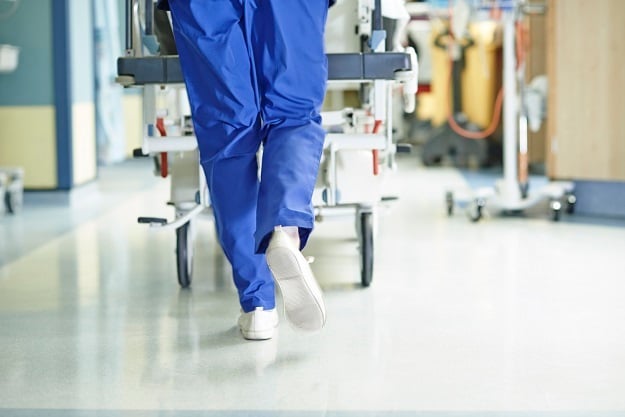
- SA medical schemes are enjoying large surpluses and reserves after fewer operations and doctor's visits during the pandemic.
- Still, the Council for Medical Schemes has recommended that medical schemes increase their 2022 contributions by up to 4.2%.
- The regulator says they may need those to pay possible higher claims in future.
While many medical schemes are sitting on record reserves, having paid much lower hospital claims in the past year than they usually do, the regulator says they can still hike their fees next year because of the many uncertainties about Covid-19.
In a new guidance note, the industry regulator, the Council for Medical Schemes (CMS), recommended that schemes raise their 2022 contributions by no more than 4.2%, which is the average inflation rate that Treasury and the SA Reserve Bank expect for next year.
While the annual medical aid contribution increases used to be much higher than the average consumer inflation in the past, the CMS now uses CPI as a proxy measure for affordability given the salary cuts and job losses that many households suffered.
"In instances where it is economically feasible to implement a lower contribution increase than the CMS recommended CPI-linked rate, trustees are encouraged to adopt innovative pricing models, subject to an independent actuarial evaluation," wrote the regulator in the circular sent to medical schemes.
However, the recommendation of CPI-linked increases comes as medical schemes report record surpluses in the past year. Most are sitting on record high reserves, which they could use to arrest contribution increases in 2022.
While using reserves to cushion members against contribution increases is an option, the CMS said medical schemes should always exercise caution when making this decision. They need to ensure that the financial sustainability of the medical schemes is still protected.
The Covid-19 unknowns
The regulator said there is still a lot of uncertainty about how the virus will affect medical aid claims in the long term. Accordingly, it advised medical schemes to prepare for the possibility that hospital admissions may rise again as people catch up on deferred surgeries and other medical needs.
It added that claims directly related to the pandemic could climb, too, as empirical evidence shows that the prevalence of "long Covid" is also increasing.
Doctors, insurers and medical schemes are still studying the potential impact of "long Covid" – persistent Covid-19 symptoms and other health complications that develop among survivors. The CMS said because the scientific and clinical evidence evolves, it is evident that this illness will likely have a material impact on medical aid claims.
It also expects that as the virus and potential future waves of infections unfold in the coming months, some medical schemes may experience sudden spikes in high-cost claims, depending on the size of the scheme and its demographic profile.
The individual financial position of the schemes before the pandemic will also determine the degree to which they can absorb possible high Covid-19-related claims should they spike.
"The CMS believes that medical schemes with high accumulated reserves should be well insulated against this spike. On the other hand, schemes that were already in a weak financial position pre-pandemic may be vulnerable in the long run," it said.
If higher claims are seen, some schemes may even be forced to merge, the CMS added.
Deferred healthcare may lead to higher costs
The regulator is also worried about the fact that many people avoided healthcare services and doctors to avoid infection during the pandemic - and that this may come back to bite schemes. The CMS said claims costs related to delayed treatment for conditions that were not diagnosed during the pandemic might be higher.
The CMS said people usually seek care at higher rates after a period of lack of access to healthcare services. So, it expects that as the vaccination rate increases and the number of Covid-19 cases become more manageable, some of the minor medical conditions that people postponed may potentially require complex and costly medical interventions.
"Studies also indicate that as countries move out of different Covid-19 waves, hospital visit volumes slowly recover, although the utilisation rates of different services remain well below pre-pandemic levels," said the CMS.
It added that while it is also probable that the demand for some healthcare services may never go back to the pre-pandemic levels, the catch-up of medical procedures may also last longer and be more costly than assumed.
Get the biggest business stories emailed to you every weekday.
Go to the Fin24 front page.
